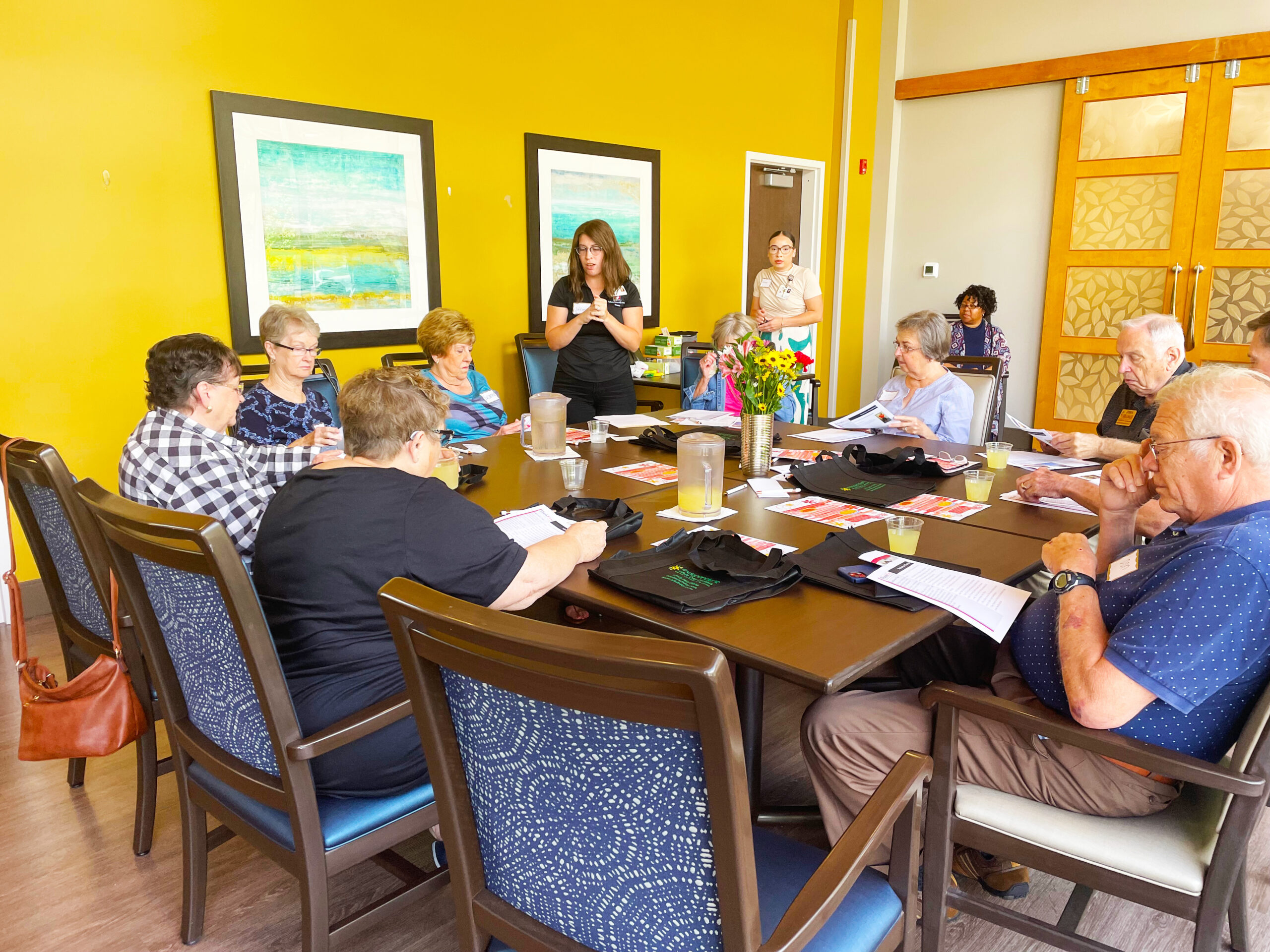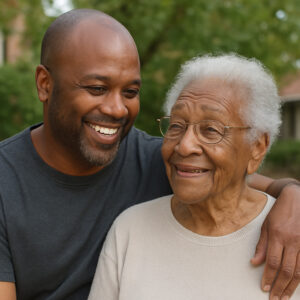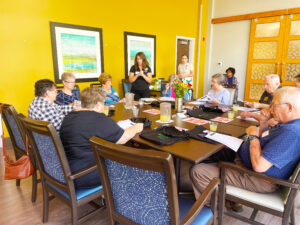Caring for an aging parent or a loved one with a chronic condition such as Alzheimer’s, dementia, Parkinson’s disease, or a traumatic brain injury (TBI) can be both profoundly meaningful and overwhelmingly demanding. While the commitment comes from a place of love, the emotional and physical toll on caregivers is real. That’s why caregiver support groups are not just helpful—they are essential.
These groups offer more than just a listening ear. They provide practical tools, emotional validation, and community. For anyone seeking support for aging parents, or looking for Alzheimer’s support, Parkinson’s support, or TBI support, joining a caregiver support group can be a lifeline. It’s where experiences are shared, burdens are lightened, and strength is found.
The Emotional Toll of Caregiving
Being a caregiver often means putting another person’s needs ahead of your own, day in and day out. Over time, this imbalance can lead to caregiver burnout, anxiety, depression, and even physical health issues. Without the right support, even the most resilient individuals can find themselves overwhelmed.
When caring for patients with Parkinson’s disease, individuals with Alzheimer’s, or loved ones living with dementia or TBI, the challenges go beyond physical caregiving tasks. Caregivers face unpredictable behaviors, memory loss, communication barriers, and heartbreaking emotional changes in the people they love most. It’s in these moments that the value of caregiver support becomes especially clear.
What Are Caregiver Support Groups?
Caregiver support groups are regular gatherings—either in person or online—where caregivers come together to share stories, resources, encouragement, and emotional support. These groups can be condition-specific (such as Alzheimer’s support or support for Parkinson’s disease), or they can be open to caregivers supporting aging parents with a range of needs.
Support groups are often facilitated by trained professionals, such as social workers, nurses, or therapists, and may be hosted by hospitals, nonprofits, adult day centers, or community health organizations.
Why Caregiver Support Groups Work
The beauty of caregiver support groups lies in their simplicity: human connection. When you’re part of a group that truly understands the demands of caregiving—especially for conditions like dementia or Parkinson’s—you feel less alone. And in that shared understanding, healing begins.
Here’s how support groups can help:
- Emotional Validation
One of the most powerful aspects of dementia patient support or support for Alzheimer’s patients is simply knowing you’re not the only one feeling what you’re feeling. In these groups, caregivers learn that frustration, grief, guilt, and even resentment are normal emotions—and that they don’t make you a bad caregiver. - Practical Advice
From managing medications to navigating behavioral changes, experienced caregivers can offer real-world strategies that work. Whether it’s tips on improving communication with patients with Parkinson’s disease or how to handle aggressive outbursts in dementia, peer insights are invaluable. - Access to Resources
Caregiver support groups often serve as a gateway to additional resources, including respite care options, adult day centers, therapy referrals, and financial planning tools. Some independent adult day centers even offer their own caregiver support services and educational events. - Encouragement to Practice Self-Care
Perhaps most importantly, caregiver support groups remind participants that self-care is not selfish. Getting enough sleep, exercising, taking breaks, or even enjoying hobbies again are vital for long-term caregiving sustainability.
Where to Find Caregiver Support Groups
Many hospitals and senior service organizations provide caregiver support group listings. Adult day centers—including Independent Adult Day Centers—often collaborate with local organizations to provide on-site or virtual support group options.
For those in urban areas or with access to technology, virtual caregiver support groups have become a flexible and accessible alternative, especially for those who may not be able to leave their loved one unattended. For those same individuals who cannot leave their loved one unattended, adult day services are a great way to get your loved one the care they need while you get the support you need.
If you’re seeking Alzheimer’s support, support for Parkinson’s disease, or dementia patient support, reach out to disease-specific nonprofits, many of which have searchable directories for local and virtual groups. You can also ask your healthcare provider or local adult day centers for recommendations.
Reclaiming Hope and Strength Through Community
At their core, caregiver support groups are about reclaiming connection—both with others and with yourself. They offer a space to speak openly, to learn from others’ experiences, and to be reminded that while the road is hard, you are not walking it alone.
The impact of caregiver support extends beyond the caregiver. When you are emotionally supported and practically equipped, your loved one benefits too. You become more patient, more present, and more capable of providing compassionate care.
Adult day centers–including Independent Adult Day Centers—frequently partner with or host their own support groups to ensure both caregivers and care recipients receive comprehensive, holistic care. While your loved one engages socially and therapeutically during the day, you can find strength and solidarity in a group of your peers.
Final Thoughts
Whether you’re supporting aging parents, caring for someone with Alzheimer’s, or helping a loved one living with Parkinson’s, TBI, or other illnesses, the road can feel isolating. But you don’t have to do it alone. Caregiver support groups are more than a resource—they are a community, a compass, and sometimes even a lifeline. Lean into the support. Seek out others who understand. And remember that your well-being matters, too. Because when caregivers thrive, so do those they care for.
IADC offers multiple caregiver support groups a month. These are free events with helpful resources, knowledgable speakers, supportive peers, and free lunch. Click here to learn more or to RSVP to attend.





